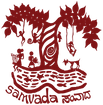The Beginnings - 1986 to 1990
In 1986, a bunch of people at the Indo-German Social Service Society in Delhi designed a programme called SMILE (Student Mobilization Initiative for Learning through Exposure) to introduce young Indians from elite educational institutions to the realities of rural and urban poverty. NGOs, trade unions and social movements became new learning environments aka classrooms in the field.
It was the first time that urban college students met marginalized communities like fisherfolk, forest-dwellers, construction workers, bonded labourers, devadasis, weavers, artisans, scavengers and other forgotten people.
Most of the students came back disturbed, inspired, and determined to learn more and “do something”. Some joined existing NGOs, a few began their own organizations, and a majority integrated social justice issues into their professions, as teachers, film-makers, writers, doctors, architects, lawyers or academics.
Anita Ratnam, who had joined the SMILE team to help expand the programme to different parts of the country, moved to Bangalore in 1989. She began the Bangalore SMILE centre, which would later become its own, autonomous organization, called Samvada.
SAMVADA - The First 20 Years - 1990 to 2010
Samvada began with a focus on exposures and discussions which helped urban students in Bangalore realise that there was “another India out there”, an India often dismissed as marginal to the urban world. These powerful experiences inspired many to work with NGOs and social movements. Others explored ways of changing society by redefining their lifestyles, educational preferences, social relationships, and political affiliations.
In 1992, we realized that exposures alone could be very confusing. We introduced workshops and one-on-one discussions to mentor young people and help make sense of their experiences. Students encountered a whole range of activists inspired by Gandhi, Ambedkar, Marx, Savitri Bai Phule and many other revolutionary thinkers. These meetings with ecologists, feminists, human rights activists and trade union leaders became turning points in their lives. We also started working with rural youth, providing these same opportunities to those who might not have access to such individuals otherwise.
This initiative led to the formation of Youth Resource Centres in 1994, also the year in which Samvada was registered as a trust. The centres were set up in several rural districts of Karnataka. As part of the national SMILE Outreach Network, Samvada also helped establish Youth Resource Centres in other states – Cense in Trissur, Sakhi in Hospet, and Elavattam in Madurai. In 2000, the SMILE network, of 22 youth focussed organisations, became the National Youth Foundation (NYF) and Samvada hosted the Central Coordination Unit of NYF till 2010.
Baduku Centre for Livelihood Learning - 2007 onwards
In 2007, we were confronted with young people’s need to find meaningful livelihoods that assured them financial stability, dignity, excitement, challenge and avenues to contribute towards social change.
“Excellent education and exciting pioneering careers cannot be only for the rich”.
Socially critical livelihoods have been conceptualised as work options, where humanity’s needs – not job markets – are central to the way one earns a living. Baduku Centre for Livelihood Learning was created, a unique institution dedicated to carving out professions and livelihoods from the emerging social and ecological challenges of our times.
A Pan Karnataka Presence - 2012 onwards
In 2012, we decided to move from peri urban areas around Bangalore and initiated Youth Resource Centres in socially critical and ecologically sensitive geographies across Karnataka.
As an organisation, Samvada has been continuously evolving, innovating and growing to address the complex needs of young people in a rapidly changing world.
Over the last ten years, our work has expanded to include promotion of youth work as a profession, advocating for youth rights, and building youth-centric knowledge through research.
